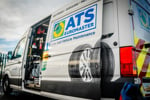SIR – As a transport administrator in a small company specialising in fleet vehicle deliveries, I know only too well the problems many fleets have to deal with on a daily basis.
These range from car accidents to insurance matters and Government legislation.
Over the past number of years we have had to increase staff just to keep on top of it all.
I personally try to keep abreast of all new legislation and requirements and in addition we have initiatives including checking drivers’ licences every three months, offering defensive driving courses and not employing drivers whose age clearly shows they have lack of experience.
We do not employ anyone with a drink-driving or insurance offence, no matter how old the offence is, we check drivers’ eyesight and we have random breath tests.
We know that people do have worries and problems and sometimes these worries can lead to lack of concentration while driving.
So we try as best as we can to make sure that these situations are limited if we know a driver has got problems at home, for example with money.
We can help drivers because it is easy enough to make a loan to the driver and to recover it in very small amounts. If they have problems with family illness etc. we can give them time off, or reduce their working hours. We try our best to help them any way we can. All driving staff are issued with a company handbook and throw-away camera. We go to great lengths to explain drivers’ responsibilities and train them in defensive driving, how to deal with accidents and how to record all details. I believe that as a company we act far more responsibly than most other firms. So why are we having more accidents?
I drive to work every day – a total of 50 miles – and I am conscious of drivers and their habits. It amazes me that no-one observes any sort of lane control. No-one indicates any more.
You need to have eyes in the back of your head, just to make sure no-one hits you. Is it getting worse, or is it just me?
I know people who are very cool, calm and collected, people who wouldn’t say boo to a goose. But stick them in a car and they are like wild animals. Despite many companies’ efforts to train drivers, some people will not change. It is like the old saying ‘you can take a horse to water...’.
Keith Cordingley
Company secretary, Promptdeliveries, Barnsley
Speeding: the controversy rumbles on
SIR – Over the past few months, I have followed with interest the debate on Fleet NewsNet over speeding and cameras.
However, I was rather disappointed by the tone of the editorial that related to the headline article ‘Speeding reaches an epidemic level’ (Fleet News, February 10).
In spite of the apparent findings of the 2005 RAC Report on Motoring, I don’t believe that there is any more of a speeding epidemic now than there was nearly 30 years ago, when roads and vehicles were much less safe and I first started my predominantly field-orientated career in the motor industry.
Admittedly, because of the development of various types of speed camera and their implementation by the thousand over the past 10 years or so, far more drivers are now actually caught exceeding speed limits than they ever were back then. In fact, this much increased detection rate is why I believe that people generally drive a little slower now than they did in even the quite recent past – they know now that they are much more likely to get points or even lose their licences by exceeding speed limits than they ever were previously.
However, I’m totally convinced there is such a thing as ‘appropriate speed’. I regularly take my UK registered company car on business trips to the continent, and it is quite legal for me to drive on certain sections of the German autobahn system at whatever speed I like, as long as that speed is appropriate for the weather, the traffic conditions, the capabilities of my car, etc.
On such sections of autobahn and under suitable conditions, I generally cruise (as do many other drivers) at between 100mph and 120mph, without remotely endangering anyone or anything. It is refreshing that on this matter the German authorities are able to adopt such an adult and enlightened attitude. And if in the UK, as the RAC report estimates, approximately 15 million drivers – who one presumes are in general a law-abiding group in all other aspects of their lives – break speed limits every day, shouldn’t the relevant authorities take on board the possibility that speed limits in many areas and on many roads may just simply be unrealistically low?
Peter Bull
Consultant, Derwent Management Services
SIR – I write regarding the ongoing debate about speeding.
We are having this debate because the police have side-stepped sensible policing of the road and ‘farmed out’ traffic matters to over-targeted and under-trained civilians who are determined to use speeding as an offensive weapon to expand their income and thus ‘empires’.
Couple this with the derogation of the powers of setting speed limits to local councils – often a hotbed of mis-information, vested interests and blind bias – so it is no wonder that many motorists view the police, their ‘partnerships’, absurd speed limits and cynical speed traps with scorn as money-making machines which have no regard for genuine road safety.
There is an example almost every mile of how stupid this whole scenario is becoming.
Almost everybody can talk about ridiculous-sounding experiences. With a certain amount of intelligence, planning, sympathy to ALL road users and investment in the transport infrastructure, this alienation could have been avoided.
Speed kills? Give me a break, it is people who kill.
The average company car driver is highly capable at any speed and is constantly adjusting it up and down to avoid getting ‘flashed’ while getting to his/her next appointment in the vain hope of meeting the bosses’ next set of over-ambitious objectives.
Take away the cash cameras and re-site them outside schools, rat runs and high streets where they might make a contribution to road safety.
Put real experienced police out on the roads and let them help drivers to understand when they are not driving well, in a constructive way. Get the transport infrastructure right – including communal transport and better roads.
Hands off the motorist. We are voters too.
Mike Wattam,
Managing associate, Mike Wattam & Associates
Please ensure that e-mails include name, job title, company and company address















Login to comment
Comments
No comments have been made yet.